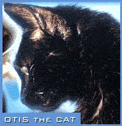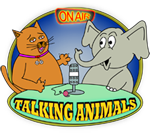Dr. Gregory Berns—author, neuroscientist, professor of psychology at Emory University (and an M.D.)—addresses the change he was seeking when he and his wife decided to buy a farm outside of Atlanta, a saga that’s among the experiences chronicled in Berns’ new book, “Cowpuppy: An Unexpected Friendship and A Scientist’s Journey into The Secret World of Cows.”  Part of the inclination behind moving to a farm, Berns says, is that the decision landed
Part of the inclination behind moving to a farm, Berns says, is that the decision landed during the pandemic, which halted face-to-face classes and research he was conducting, spurring the feeling that handling everything remotely, endless Zooms and so on, could be done from anywhere. And he’d long pondered the notion of what his life might look like if he were to purchase and tend to a farm. So, a confluence of factors, really. The early going was supremely challenging, Berns writes in “Cowpuppy,” in no small measure because he was traveling an initially steep learning curve. It was a decidedly different world from academia and his high-profile research work, including training dogs to go into MRI scanners (to examine their brains and minds). As an early digression in this conversation, I ask Berns to address how these canines cope with the often-intense noise of MRIs, and whether dogs get claustrophobic. Back to the subject at hand—“Cowpuppy,” a memoir recounting his world as a newly-minted farmer and developing a small herd of cattle—I offered the observation that a central theme that emerges in the book is transformation. Berns emphatically agrees,
during the pandemic, which halted face-to-face classes and research he was conducting, spurring the feeling that handling everything remotely, endless Zooms and so on, could be done from anywhere. And he’d long pondered the notion of what his life might look like if he were to purchase and tend to a farm. So, a confluence of factors, really. The early going was supremely challenging, Berns writes in “Cowpuppy,” in no small measure because he was traveling an initially steep learning curve. It was a decidedly different world from academia and his high-profile research work, including training dogs to go into MRI scanners (to examine their brains and minds). As an early digression in this conversation, I ask Berns to address how these canines cope with the often-intense noise of MRIs, and whether dogs get claustrophobic. Back to the subject at hand—“Cowpuppy,” a memoir recounting his world as a newly-minted farmer and developing a small herd of cattle—I offered the observation that a central theme that emerges in the book is transformation. Berns emphatically agrees,  and he speaks to what he found most transformative about both farm life and—a parallel,
and he speaks to what he found most transformative about both farm life and—a parallel, but different question—cow life. “Cowpuppy” is chockful of fascinating observations and revelations, sometimes veering into science and particular forms of research. For example, we discuss his chapter about cows’ personal space, which covers all kinds of ground, including indicating that the phrase actually originated with a study of animals in the 1950s—and how an animal’s boundaries can evolve, as they did with his cow Lucy. We also talked over assorted aspects of cow communication, particularly as it relates to Berns’ herd—there’s a lot more than “moo” here. In this portion of the discussion, Berns observes that cows tend to be misunderstood and underappreciated, later adding that one of his aspirations in writing “Cowpuppy” was to help alter that perception. We also touch on Berns’ friend Ken Peek, a neighboring farmer, retired pastor and Vietnam vet he met upon moving to the farm, and with whom he developed such a strong bond, he dedicated the book to him. Plus, Berns and Ken realized that Berns’ herd of cows, when gathered quietly or just resting, could project a sort of healing power. Pretty soon they were not only availing themselves of that power, but Berns was inviting other neighbors to participate in these bovine-centered therapy sessions of sorts.
but different question—cow life. “Cowpuppy” is chockful of fascinating observations and revelations, sometimes veering into science and particular forms of research. For example, we discuss his chapter about cows’ personal space, which covers all kinds of ground, including indicating that the phrase actually originated with a study of animals in the 1950s—and how an animal’s boundaries can evolve, as they did with his cow Lucy. We also talked over assorted aspects of cow communication, particularly as it relates to Berns’ herd—there’s a lot more than “moo” here. In this portion of the discussion, Berns observes that cows tend to be misunderstood and underappreciated, later adding that one of his aspirations in writing “Cowpuppy” was to help alter that perception. We also touch on Berns’ friend Ken Peek, a neighboring farmer, retired pastor and Vietnam vet he met upon moving to the farm, and with whom he developed such a strong bond, he dedicated the book to him. Plus, Berns and Ken realized that Berns’ herd of cows, when gathered quietly or just resting, could project a sort of healing power. Pretty soon they were not only availing themselves of that power, but Berns was inviting other neighbors to participate in these bovine-centered therapy sessions of sorts.
 ALSO: I spoke briefly with Regan Blessinger, Marketing & Content Manager at the Humane Society of Tampa Bay, discussing their Paws for Literacy program. Blessinger explained that Paws for Literacy, launched about 10 years ago, enables kids who love animals to spend time with them at the shelter, while enjoying a book, or improving their reading skills. The kids who participate in the program are offered assorted options, including choosing what kind of animal currently residing at the shelter they would like to read to (it’s not just dogs and cats), selecting amongst the books the shelter has in its collection, or bringing their own book. Blessinger observes that some children use the Paws for Literacy sessions to complete assigned school reading. The program is free to attend, but the shelter does request that children are registered in advance of the sessions—held Tuesdays and Thursdays, from 2:45-4pm—and also asks that a parent or guardian accompany the youngster to each session. (https://humanesocietytampa.org/service/paws-for-literacy/)
ALSO: I spoke briefly with Regan Blessinger, Marketing & Content Manager at the Humane Society of Tampa Bay, discussing their Paws for Literacy program. Blessinger explained that Paws for Literacy, launched about 10 years ago, enables kids who love animals to spend time with them at the shelter, while enjoying a book, or improving their reading skills. The kids who participate in the program are offered assorted options, including choosing what kind of animal currently residing at the shelter they would like to read to (it’s not just dogs and cats), selecting amongst the books the shelter has in its collection, or bringing their own book. Blessinger observes that some children use the Paws for Literacy sessions to complete assigned school reading. The program is free to attend, but the shelter does request that children are registered in advance of the sessions—held Tuesdays and Thursdays, from 2:45-4pm—and also asks that a parent or guardian accompany the youngster to each session. (https://humanesocietytampa.org/service/paws-for-literacy/)
COMEDY CORNER: Tim Harmston’s “Seagull” (https://www.timharmston.com/)
MUSIC: Rebekah Pulley’s “Talking Animals Theme,” Corb Lund’s “Cows Around,” instrumentals
NAME THAT ANIMAL TUNE: The Everly Brothers’ “Bird Dog”
AUDIO ARCHIVE:
Listen Online Now:



